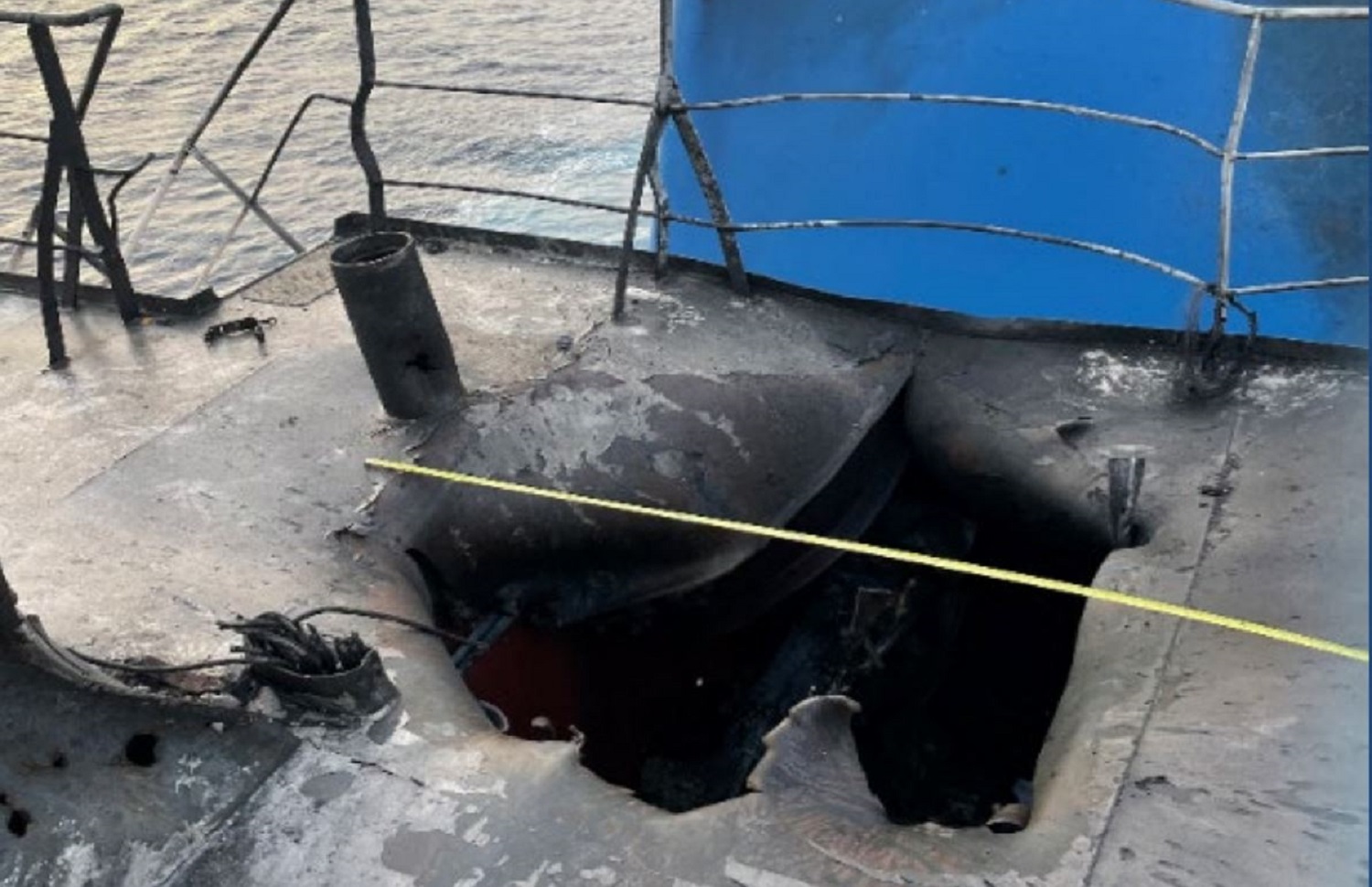
The Mercer Street was hit in a drone attack off the coast of Oman on July 29. Photos: Left: Karim Sahib/AFP; Right: US Navy Captain Bill Urban/US Navy/AFP
ERBIL, Kurdistan Region — Iran again denied responsibility for a deadly attack on an Israeli-linked ship off the coast of Oman and said if they wanted to strike their enemies, they would do so openly.
“Iran would attack explicitly if it wanted to, like what it did in Ain al-Asad airbase in Iraq,” said Brig. Gen. Abol-Fazl Shekarchi, spokesperson for Iran’s armed forces, according to IRNA.
He said the maritime incident was being used to start a “media war” just as Iran’s new president Ebrahim Raisi was taking office.
Two people were killed, a Brit and a Romanian, in an attack on the Mercer Street oil tanker last week. G7 nations and the European Union blamed Iran. “This was a deliberate and targeted attack, and a clear violation of international law. All available evidence clearly points to Iran,” read a joint statement. The United States said it was a drone attack.
Iran’s foreign ministry spokesperson Saeed Khatibzadeh dismissed the accusation as “baseless” and claimed Israel was behind the allegation.
The Mercer Street is managed by a firm owned by an Israeli billionaire and Israel’s defence minister, Benny Gantz, threatened Iran this week. “We are at a point where we need to take military action against Iran,” he said in an interview. “The world needs to take action against Iran now.”

Tehran responded to Israel at the United Nations, where its deputy ambassador Zahra Ershadi said Israel was the biggest threat to regional security, including carrying out more than 10 attacks on commercial ships in the past two years. Three people were killed when a fire erupted on an Iranian ship off the Syrian coast in April. Tehran blamed Israel.
In January 2020, Iran fired missiles at Iraq’s Ain al-Asad airbase in Anbar province, housing American troops. The attack was in retaliation for the assassination of Iranian Gen. Qasem Soleimani and deputy commander of Iraq’s Popular Mobilization Forces (PMF) Abu Mahdi al-Muhandis.
Many militias within the PMF are closely aligned with Tehran and are opposed to US troop presence in Iraq. They are blamed for at least 31 drone and rocket attacks on US interests in Iraq and Syria this year, according to data compiled by Rudaw English.
Iranian President Ebrahim Raisi met PMF chairman Falih al-Fayyadh on Friday and he praised the force.
“The popular mobilisation is a great support for the development and progress of Iraq and defending the people against the conspiracies and plots of foreigners, just as what Imam Khomeini did in Iran by forming the Organisation for Mobilisation of the Oppressed,” he said, referring to the Basij, a volunteer militia accused of using excessive force against peaceful protesters.







Comments
Rudaw moderates all comments submitted on our website. We welcome comments which are relevant to the article and encourage further discussion about the issues that matter to you. We also welcome constructive criticism about Rudaw.
To be approved for publication, however, your comments must meet our community guidelines.
We will not tolerate the following: profanity, threats, personal attacks, vulgarity, abuse (such as sexism, racism, homophobia or xenophobia), or commercial or personal promotion.
Comments that do not meet our guidelines will be rejected. Comments are not edited – they are either approved or rejected.
Post a comment